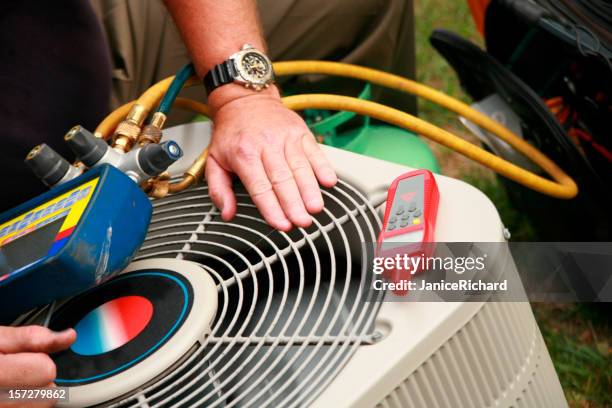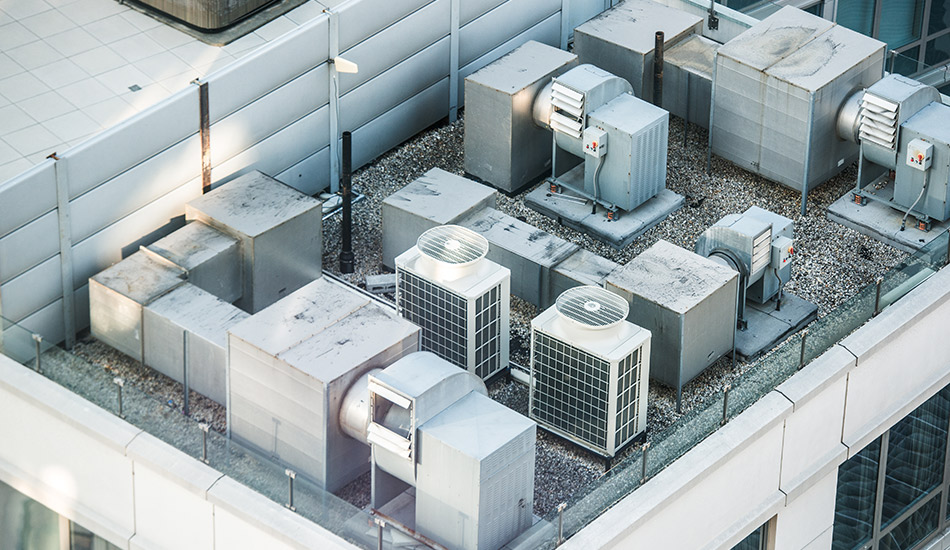Why Homeowners are Switching to ductless mini splits for Modern HVAC Needs
Choosing In Between a Heat Pump and Heater: Secret Factors To Consider for Your Cooling And Heating Requirements
When reviewing heating options for cooling and heating requires, the decision in between a heatpump and a heating system can be intricate. Each system supplies distinct advantages tailored to particular climates and energy efficiency goals. Recognizing these differences is important for making an educated option. Secret elements such as setup expenses and ecological effect better make complex the selection procedure. Which choice absolutely straightens with one's comfort and sustainability choices? The following areas will check out these considerations carefully.
Recognizing Heat Pumps: Exactly How They Work and Their Benefits
While several homeowners consider different home heating choices, comprehending just how heat pumps function and their advantages can greatly influence their choice. Heat pumps run by moving warmth as opposed to creating it. In the wintertime, they extract warmth from the outside air or ground and transfer it indoors, while in the summer, they reverse this process, cooling the home by getting rid of warm outside. This twin capability makes them functional for year-round climate control.One of the key benefits of warm pumps is their power performance. They use significantly much less electricity compared to standard heater, possibly resulting in lower utility expenses (heat pump replacement ooltewah tn). In addition, heatpump have a smaller carbon footprint, making them an ecologically pleasant option. They additionally call for much less upkeep than standard systems, contributing to long-term price savings. Overall, understanding the mechanics and advantages of heatpump can help homeowners make informed choices concerning their home heating and cooling down demands
Exploring Furnaces: Types, Operation, and Advantages
Heaters come in different types, including gas, electrical, and oil designs, each with unique operational mechanisms. Understanding these distinctions is vital, as they affect efficiency and heating efficiency. Furthermore, heaters supply many advantages, such as consistent heat result and dependability in colder environments.
Kinds of Furnaces
Heating unit can differ significantly in style and procedure, with heating systems being a prominent choice amongst house owners. There are a number of sorts of heaters, each making use of various fuel resources and innovations. Gas furnaces prevail, leveraging all-natural gas to produce warmth effectively. Electric heaters, on the other hand, utilize electrical resistance to generate heat, typically preferred for their simple installment. Oil heaters, while less usual, are efficient in locations with minimal gas gain access to (furnace replacement). Additionally, condensing heating systems optimize energy effectiveness by recording and reusing exhaust gases. Each type runs via a system of heat exchangers and ductwork to disperse cozy air throughout a home. Understanding the differences between these furnace kinds is important for notified a/c choices
Advantages of Heaters
For home owners looking for trusted heat throughout cool months, the advantages of furnaces are considerable. Heaters provide constant heating, making sure also temperature levels throughout the home. They are particularly effective in extreme cool, frequently outmatching heatpump in freezing conditions. Different types, consisting of gas, electrical, and oil heaters, offer versatility to fulfill varied demands and preferences.Furnaces additionally often tend to have lower preliminary setup expenses contrasted to heatpump, making them a much more easily accessible alternative for numerous. Their robust layout adds to a much longer life-span, with lots of units lasting over 15 years with appropriate upkeep. In addition, modern heaters are typically outfitted with advanced technology for improved efficiency, which can bring about reduced energy costs. Overall, heaters stay a trustworthy option for efficient home heating.

Power Efficiency: Contrasting Warmth Pumps and Furnaces
When comparing energy effectiveness between heatpump and heaters, the Seasonal Power Efficiency Ratio (SEER) plays a crucial role in figuring out efficiency. Additionally, an operational price analysis exposes the long-term monetary implications of each system. Understanding these aspects can guide homeowners in making informed choices concerning their home heating services.
Seasonal Energy Performance Proportion
Energy effectiveness plays an important function in the decision-making procedure in between heatpump and heating systems, specifically when considering the Seasonal Energy Effectiveness Proportion (SEER) This metric actions the cooling efficiency of heatpump over an entire air conditioning season, supplying a standard way to examine performance. Higher SEER rankings show better energy performance, translating to lower power usage and reduced energy bills. On the other hand, heating systems are normally examined making use of the Yearly Gas Application Efficiency (AFUE) score, which shows home heating effectiveness. When contrasting these two systems, property owners must focus on SEER rankings for heatpump, as they directly influence overall power financial savings and environmental sustainability. A comprehensive understanding of SEER can notably influence the lasting complete satisfaction and cost-effectiveness of the chosen heating and cooling solution.
Operational Expense Evaluation
Understanding the operational costs related to heatpump and heaters is important for home owners examining their choices. Heatpump normally supply higher energy performance, transforming electrical power into warmth with very little waste. This leads to lower regular monthly utility bills, particularly in moderate environments. Conversely, standard furnaces, particularly gas models, may have reduced upfront prices however can sustain higher functional expenditures with time because of sustain costs and effectiveness ratings.Moreover, warm pumps can operate as both home heating and cooling systems, potentially lowering the requirement for separate a/c units. While initial investments for warmth pumps might be higher, their long-lasting savings in power effectiveness can make them a more economical choice for numerous families. Careful analysis of local power prices is necessary to figure out the best alternative.
Installation Prices: What to Expect for every Home Heating System
Setup costs for home heating systems can differ considerably in between heatpump and furnaces, influencing home owners' decisions. Heatpump normally have greater in advance installation costs, generally ranging from $3,500 to $8,000, relying on the system size and intricacy of installation. This includes the outdoor unit, indoor handling system, and needed ductwork modifications. Alternatively, heaters have a tendency to have reduced preliminary prices, balancing between $2,500 and $6,000, which can be appealing for budget-conscious home owners. Installation costs can boost if extensive ductwork is required.Moreover, the choice of gas kind for heating systems-- natural gas, propane, or electric-- can likewise affect setup costs. While heatpump use power efficiency, their first investment may prevent some customers. Inevitably, evaluating installation prices alongside lasting financial savings and performance will certainly aid homeowners in making informed choices about their heater.
Climate Factors To Consider: Which System Executes Better in Your Location
Exactly how do climate conditions influence the effectiveness of heater? The efficiency of heat pumps and heating systems can differ substantially relying on the regional environment. In modest environments, heatpump succeed by effectively transferring heat from the outdoors air, making them an energy-saving option. Their efficiency diminishes in incredibly chilly temperatures, where they might struggle to draw out adequate heat. On the other hand, heating systems, particularly gas versions, provide consistent and reliable warm despite exterior conditions, making them more effective in cooler regions.In areas that experience milder winters, warm pumps can operate properly year-round, giving both heating & cooling. In contrast, areas with rough wintertimes commonly benefit from the effectiveness of heaters. Ultimately, recognizing the local environment is crucial when choosing in between a heatpump and a heater, as it directly influences their functional efficiency and total performance.
Maintenance Needs: Long-Term Treatment for Warm Pumps vs. Furnaces
While both heatpump and heating systems require routine maintenance to guarantee peak efficiency, their particular needs and treatment regimens differ substantially. Heating systems normally need much less frequent focus, with annual inspections being enough to look for gas leakages, clean filters, and examine overall capability. Their easier layout commonly allows for simple repairs.In contrast, heatpump demand semiannual upkeep because of their dual role in cooling and heating. This includes cleansing coils, checking cooling agent degrees, and guaranteeing that both the outside and interior units operate at their best. Furthermore, warmth pump maintenance often includes even more intricate elements, making specialist servicing essential.Neglecting upkeep can lead to decreased effectiveness and raised energy expenses for both systems. Eventually, homeowners must consider these long-term care demands when picking between a heatpump and a heating system, as proactive maintenance can expand the life-span and efficiency of either system considerably.
Environmental Effect: Selecting a Lasting Heating Option
The environmental effect of heating unit is a crucial assessment for homeowners looking for lasting choices. Heat pumps are usually much more energy-efficient than conventional heating systems, as they transfer heat as opposed to generate it, greatly reducing carbon emissions. By utilizing next page renewable power resources, such as air-source or geothermal warm pumps, house owners can additionally minimize their environmental footprint.On the various other hand, gas heating systems discharge greenhouse gases my site and add to air pollution, though they typically supply higher warmth result. Nevertheless, developments in technology have actually caused the advancement of high-efficiency furnaces that decrease emissions.Ultimately, choosing a heating unit entails considering effectiveness against ecological effect. Home owners are motivated to review regional energy resources and incentives for sustainable systems, making sure an option that straightens with both personal convenience and environmental obligation. The choice affects not just immediate convenience but likewise lasting sustainability and environmental wellness.
Frequently Asked Concerns
For How Long Do Warmth Pumps and Furnaces Normally Last?
The lifespan of heatpump typically varies from 15 to 20 years, while heating systems can last in between 15 to 30 years. Routine upkeep significantly influences their longevity and effectiveness in providing home heating services.
Can I Utilize a Heatpump in Extremely Cold Climates?
Warm pumps can run in exceptionally cold climates, however their effectiveness lessens as temperatures drop. In such conditions, extra home heating sources might be essential to maintain comfy indoor temperatures and guarantee peak efficiency.

What Is the Noise Degree of Warmth Pumps Versus Furnaces?
The noise levels of heatpump and furnaces differ significantly. Typically, heatpump run more quietly than conventional heaters, making them better for those conscious appear, while heating systems may create louder operational noises throughout heating cycles.
Are Warmth Pumps Suitable for Both Home Heating and Air conditioning?
Warm pumps are certainly ideal for both cooling and heating (heat pump installation ooltewah tn). They work by moving warm, providing effective temperature level control year-round, making them a flexible selection for house owners seeking an all-in-one HVAC remedy
What Size Furnace Do I Required for My Home?
Identifying the appropriate dimension heating system for a home calls for examining variables such as square video, insulation top quality, local environment, and the home's layout. Consulting an expert can ensure an exact evaluation and ideal convenience. Heat pumps commonly use higher energy efficiency, transforming electrical energy into warm with very little waste. In modest environments, warmth pumps excel by efficiently transferring warm from the outdoors air, making them an energy-saving choice. Alternatively, furnaces, particularly gas models, offer trusted see here and consistent warm no matter of outside problems, making them more suitable in chillier regions.In areas that experience milder winter seasons, warm pumps can operate efficiently year-round, supplying both home heating and cooling. Heat pumps are typically much more energy-efficient than conventional heating systems, as they transfer heat instead than create it, substantially lowering carbon exhausts. By using sustainable energy resources, such as air-source or geothermal warm pumps, house owners can additionally reduce their environmental footprint.On the various other hand, all-natural gas furnaces discharge greenhouse gases and add to air contamination, though they commonly supply greater warm outcome.